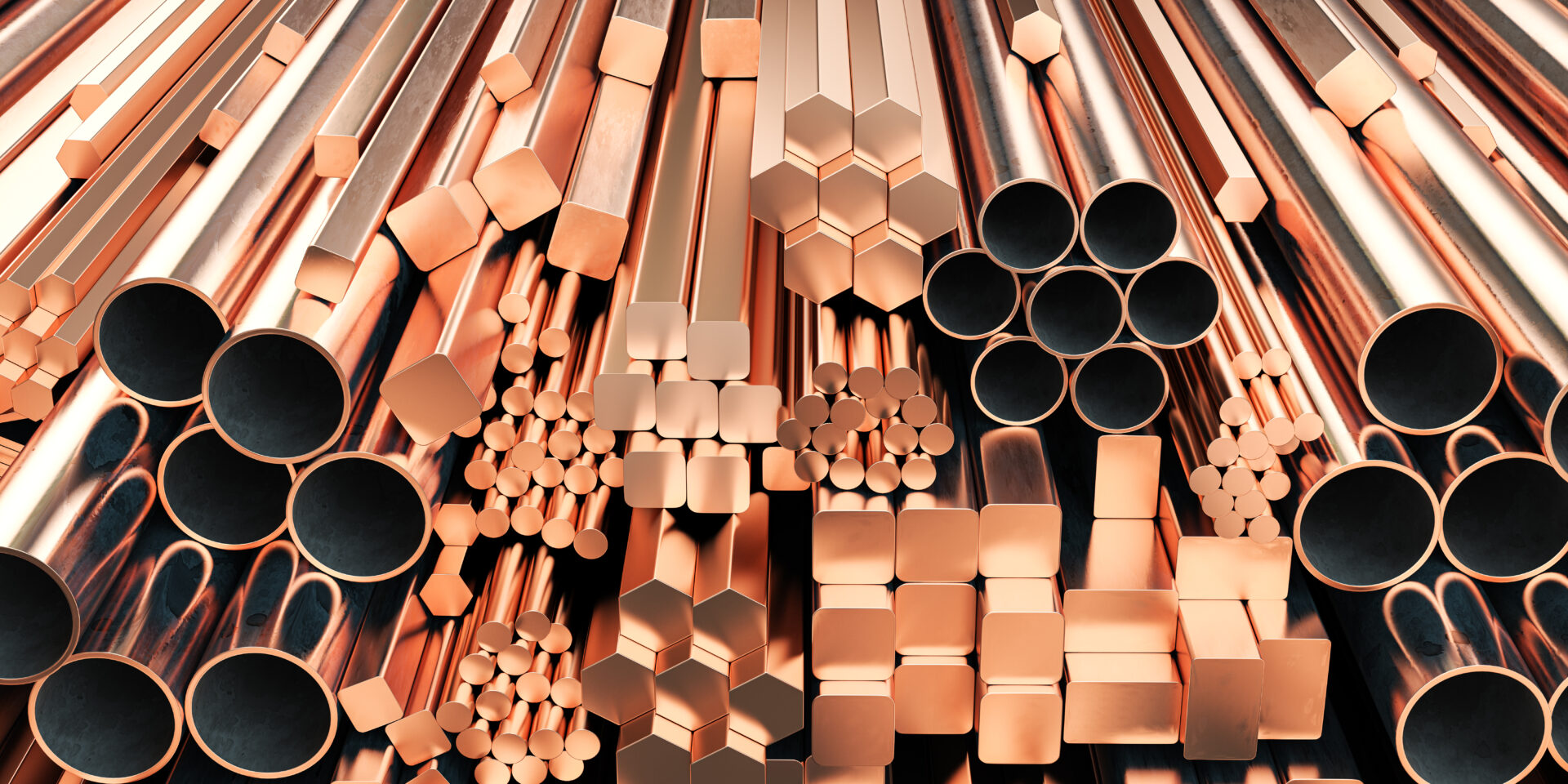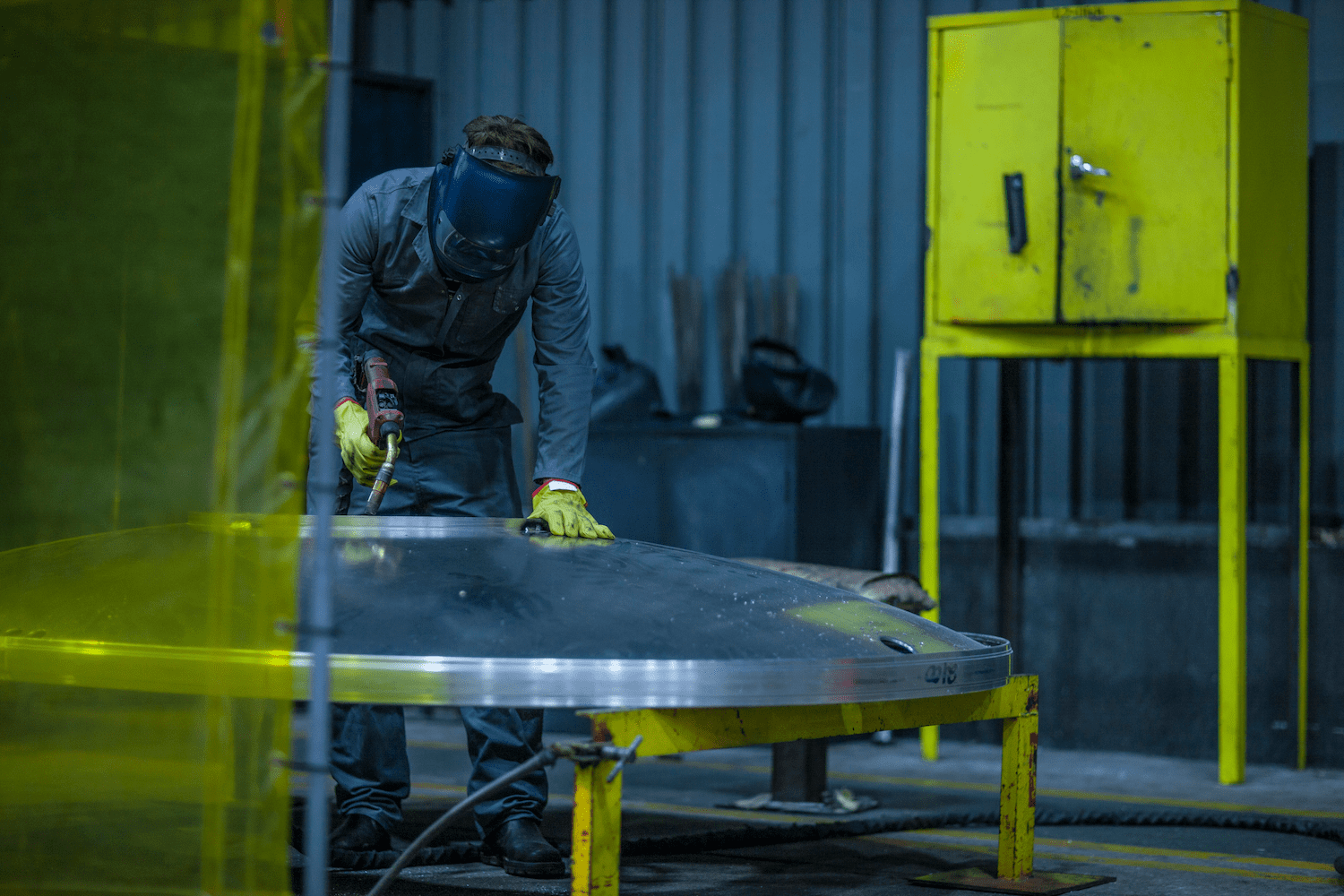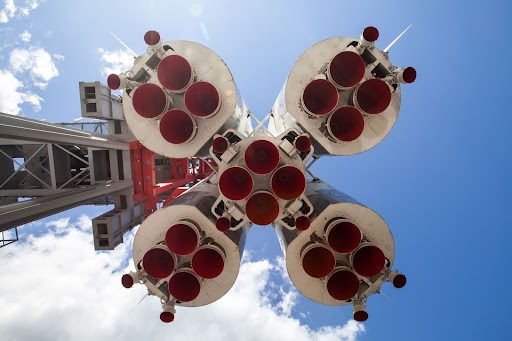
Florida has long been the gateway to space, and today, its aerospace industry is soaring higher than ever.
From government-led missions at NASA’s Kennedy Space Center to innovations from private companies at Cape Canaveral, Florida is solidifying its place for aerospace innovation, growth, and sustainability.
In this blog, we’ll explore the vast potential the space industry has for recycling aerospace metal and some of the benefits.
Florida’s Aerospace Industry is Thriving
The Sunshine State has always played a central role in the U.S. space program, but in recent years, it’s become a magnet for both commercial and government aerospace initiatives.
The Kennedy Space Center continues to be a focal point of NASA’s launches, while Cape Canaveral has become a bustling launch site for private companies.
With leading private aerospace companies planning relocations or expansions into Florida, the state’s aerospace economy is taking off even more. This growth brings not only opportunity, but also responsibility.
The Aerospace Industry Produces A Massive Amount Of Waste
From rocket boosters and engine casings to structural components and shielding materials, every mission leaves behind a trail of metals.
Multi-stage rockets, for instance, shed various parts as they ascend through Earth’s atmosphere. These massive components, built with advanced alloys, often fall into remote areas, never to be recovered.
Additionally, satellites that reach the end of their operational life, test vehicle parts, and decommissioned space components all contribute to a growing pile of aerospace scrap, both on Earth and in orbit.
But that doesn’t mean those materials should go to waste. That’s where aerospace metal recycling steps in, offering a smarter, greener way.
Aerospace Metals You Can Recycle
Did you know that over 80% of an aircraft can be recycled? From large fuselage sections to engine components, many of the high-performance metals used in aerospace design can be recovered, processed, and reused.
Aerospace components are made from some of the world’s most valuable and durable metals. These include:
- Aluminum: Widely used in external panels and structural frames due to its lightweight and corrosion-resistant properties. Often recovered from payload fairings and outer shells.
- Titanium: Known for its strength and heat resistance, titanium is used in propulsion systems, engine mounts, and high-stress joints, parts that often detach during launch stages.
- Steel: This metal can be found in landing gear mechanisms, pressurized vessels, and internal support systems. While heavier, steel is essential for withstanding intense pressure and stress.
- Nickel-Based Alloys: These high-performance metals are used in rocket engines and thermal shielding components that are built to survive extreme heat during takeoff or re-entry.
Many of these metals can be reclaimed from recovered parts or manufacturing scrap and reprocessed for future use, contributing to a circular economy in aerospace manufacturing.
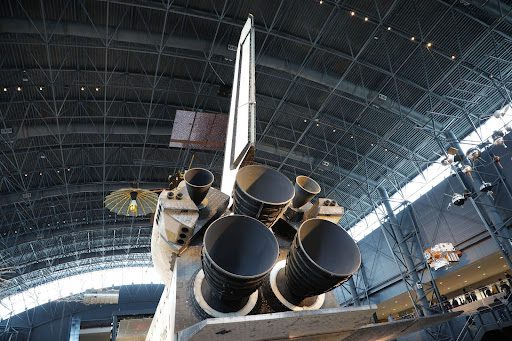
Benefits of Responsible Aerospace Metals Recycling
By now, it is widely known that recycling is good for the planet. But recycling aerospace metals isn’t just good for the environment—it’s also smart business.
1. Reduces Waste
Every space mission sheds parts along the way. Boosters, fuel tanks, engine housings, and fairings are commonly jettisoned.
Without proper recovery and recycling, these components risk becoming space debris, polluting oceans, or ending up in landfills. Recycling gives these discarded parts a second life.
When metals are left in landfills to decompose, they can also release chemicals into the soil and surrounding water.
2. Conserves Natural Resources
Many of the metals used in spacecraft, such as titanium and nickel-based alloys, are not only costly but increasingly scarce.
Recycling allows the aerospace industry to reduce dependence on raw material extraction, ensuring these critical resources remain available for future innovations and missions.
Reducing the need for more extraction also helps prevent land degradation, water contamination, and unnecessary greenhouse gas emissions.
3. Lowers Energy Consumption
Recycling aerospace metals requires far less energy than producing them from raw ore. Producing metals from virgin ore involves high-temperature smelting, complex chemical processes, and massive energy input—especially when creating materials that must meet aerospace-grade standards.
For example, recycling aluminum uses up to 95% less energy than creating new aluminum. Given the scale of materials used in a single launch, the energy savings from recycling are massive.
4. Improves Compliance
Government agencies and international organizations are now requiring stricter reporting on emissions, resource usage, and waste management—especially for companies involved in manufacturing, launching, and maintaining spacecraft.
With growing pressure on the aerospace industry to reduce emissions and environmental impact, recycling supports compliance with sustainability regulations and corporate ESG goals.
Failure to comply isn’t just a risk to your reputation, it can also result in costly fines, legal action, and loss of government contracts or funding.
5. Enhanced Reputation
Companies that take action not only improve their environmental standing but also strengthen their reputation with stakeholders, governments, and the public. Being known as a company that cares about being green and sustainable is great for your bottom line.
Seventy-eight percent of consumers feel that sustainability is important, and 62% will make purchases because a company is sustainable.
6. Supports Circular Economy
The concept of a circular economy doesn’t have to stop at Earth’s surface. As we move toward more frequent launches, satellite deployments, and even off-world construction, recycling and reusing spacecraft components will become essential.
Whether it’s repurposing old satellite parts or salvaging launch debris, the goal is to minimize waste and maximize utility, even beyond our atmosphere.
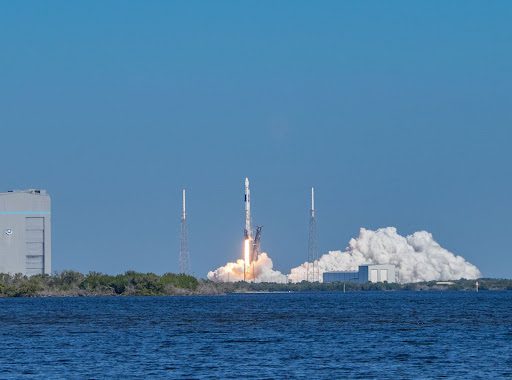
Recycle Aerospace Metals with GLE Scrap
As Florida’s aerospace industry climbs to new heights, now is the time for companies to align growth with sustainability. At GLE Scrap Metal, we specialize in recycling metals, including aluminum, titanium, and nickel alloys.
Our state-of-the-art facilities and environmentally responsible processes ensure that your scrap doesn’t go to waste—it goes back into the future of space flight.
Ready to take your sustainability efforts to the next level—even into space? Explore our blog on how recycling is expanding beyond Earth and all of the opportunities the space industry brings.
Partner with GLE Scrap Metal today to responsibly recycle your aerospace metals, reduce your environmental footprint, and support a more sustainable future in flight. We have several locations in Florida for your convenience, and we work hard to make the process as seamless as possible.

